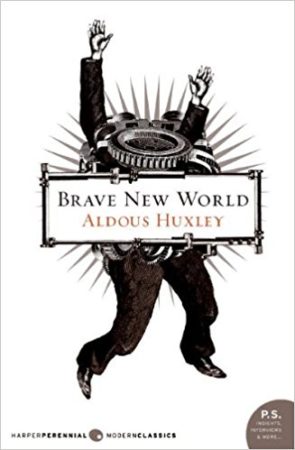Introduction

One one occasion the Roman emperor, Julian the Apostate, told the people of Alexandria that they could choose another bishop for themselves, but that Athanasius had to leave Alexandria. Athanasius encouraged his friends by telling them that Julian was “but a little cloud” that was going to soon pass over.
And this confidence from an early church father can provide us with another bit of encouragement in troublous times. We are in our day confronted with quite a cluster of challenges, from Biden to Big Tech, and a range of other tedious troubles in between. And all of them are but a little cloud.
Here’s why.
Schaeffer for the Win
Back in the mid-seventies, Francis Schaeffer released the ten-part film series How Shall We Then Live? We are now coming up on fifty years later, and Nancy and I recently decided to watch the series again. As expected, it was quite good, but I was particularly struck by what he predicted in the concluding episode, and the way he predicted it.
One of the great themes of the series was that a Christian consensus was necessary to prevent freedom from devolving into chaos. Given a Christian consensus, it was possible to have form and freedom together, without one swallowing up the other. But when that consensus is lost, and form swallows freedom, you have tyranny straight up. When freedom swallows form, you have anarchy, which leads to different kind of tyranny
Now remember that he was saying all this before the rise of the Internet. He was looking at the elites of his day, men who were trying to live out their vapid tyrannical aspirations with the tools they had at the time—media, genetic engineering, and so on. They knew what they wanted, and were striving for it even then. What they wanted was what C.S. Lewis presciently called—thirty years before Schaeffer—the abolition of man. And the tools these elites wanted to use were basically what Richard Weaver had called the stereopticon in Ideas Have Consequences, also decades before Schaeffer. But the lust for control that had these elites by the throat—libido dominandi—has been constant throughout.
So it was striking that Schaeffer did not predict, and could not have predicted, something like the controls and techniques of Big Tech. But he did predict, and predicted with uncanny accuracy, their ghastly aspirations.
In that tenth episode, Schaeffer warned everyone that the tyranny we could expect to develop in the West was not going to be like a Hitler or a Stalin. No. He said that the choice had to be the absolutes of the Christian consensus, on the one hand, or it would be a false absolute, originating with autonomous man, on the other. That is what it came down to. Those were the available choices.
Now because it was an absolute that would begin with finite man, Schaeffer predicted—and please get this—that the tyranny we would confront here in the West would be that of a manipulative arbitrary absolute. And lo, here we are.
So here I have been, trying to cheer you up for this entire post, and you are not cheered up yet. What gives?
Transcendental Perspective
Christians know that for their own individual lives to have any meaning, those lives must be lived in relation to the living God. This is an essential part of what it means to be a Christian. Put another way, the things I do throughout the course of a day must be oriented to a transcendental absolute. I am set free to live as someone created in the image of God, and through the sacrifice and resurrection of Christ, that image, marred through sin, is being restored. Through the truth of the gospel, I can give an account of myself.
Acknowledging that Christ is Lord of all gives meaning to my marriage, my family, my vocation, and everything else that I might do. The Christian is in a position, whatever he does, to do every last thing he does to the glory of God (1 Cor 10:31). This means that our lives are oriented, calibrated, and aligned to true north.
But something else is included as well. A believer does not just have his own life put in perspective, but he can also see the ultimate vanity entailed in every Ozymandian boast. “Look on my works, ye mighty and despair.” Shelly’s great poem was inspired by the vaunts of Ramses II, a man who is no longer of any concern to any of us.
Let me quote the whole thing.
I met a traveller from an antique land,
Who said—“Two vast and trunkless legs of stone
Stand in the desert. . . . Near them, on the sand,
Half sunk a shattered visage lies, whose frown,
And wrinkled lip, and sneer of cold command,
Tell that its sculptor well those passions read
Which yet survive, stamped on these lifeless things,
The hand that mocked them, and the heart that fed;
And on the pedestal, these words appear:
My name is Ozymandias, King of Kings;
Look on my Works, ye Mighty, and despair!
Nothing beside remains. Round the decay
Of that colossal Wreck, boundless and bare
The lone and level sands stretch far away.
And yes, I know. Shelley was no Christian. But let me remind you what Schaeffer said about the Christian consensus.
Here is the short form. The Christian not only knows his God, but he also knows, as a corollary, who is not God. And he knows that whoever is not God, whatever his pretensions, and however grand his boasts . . . he is but a little cloud.

